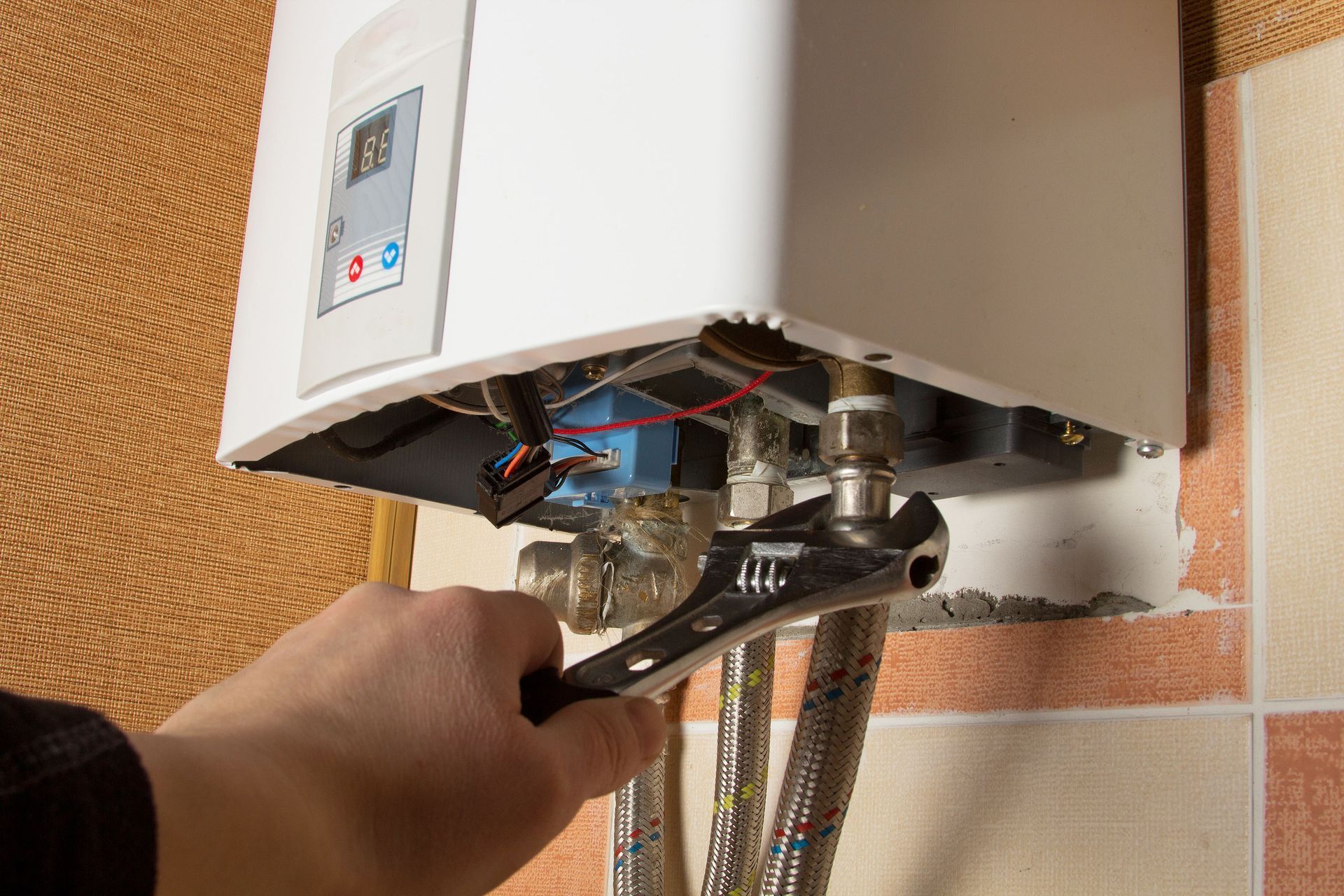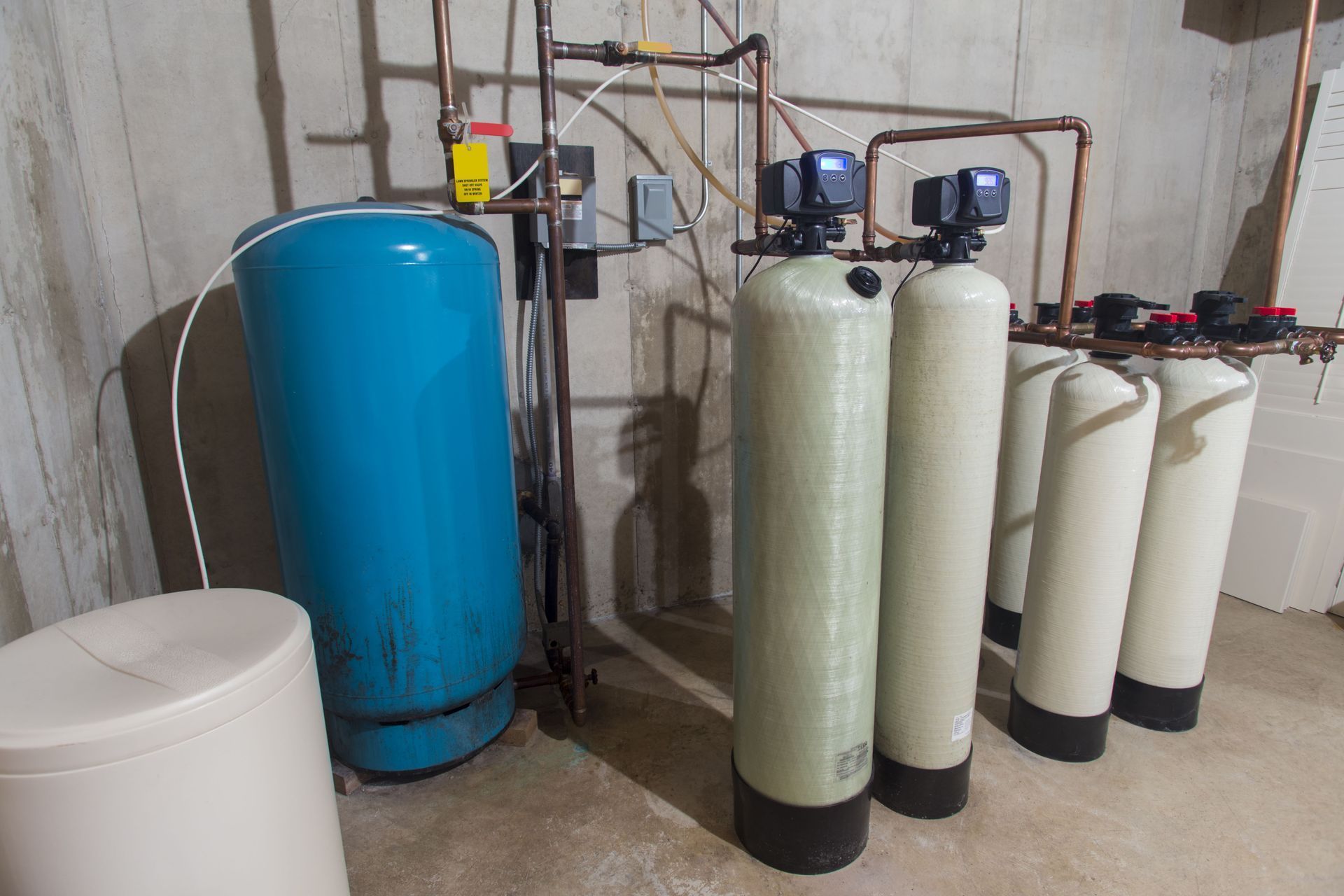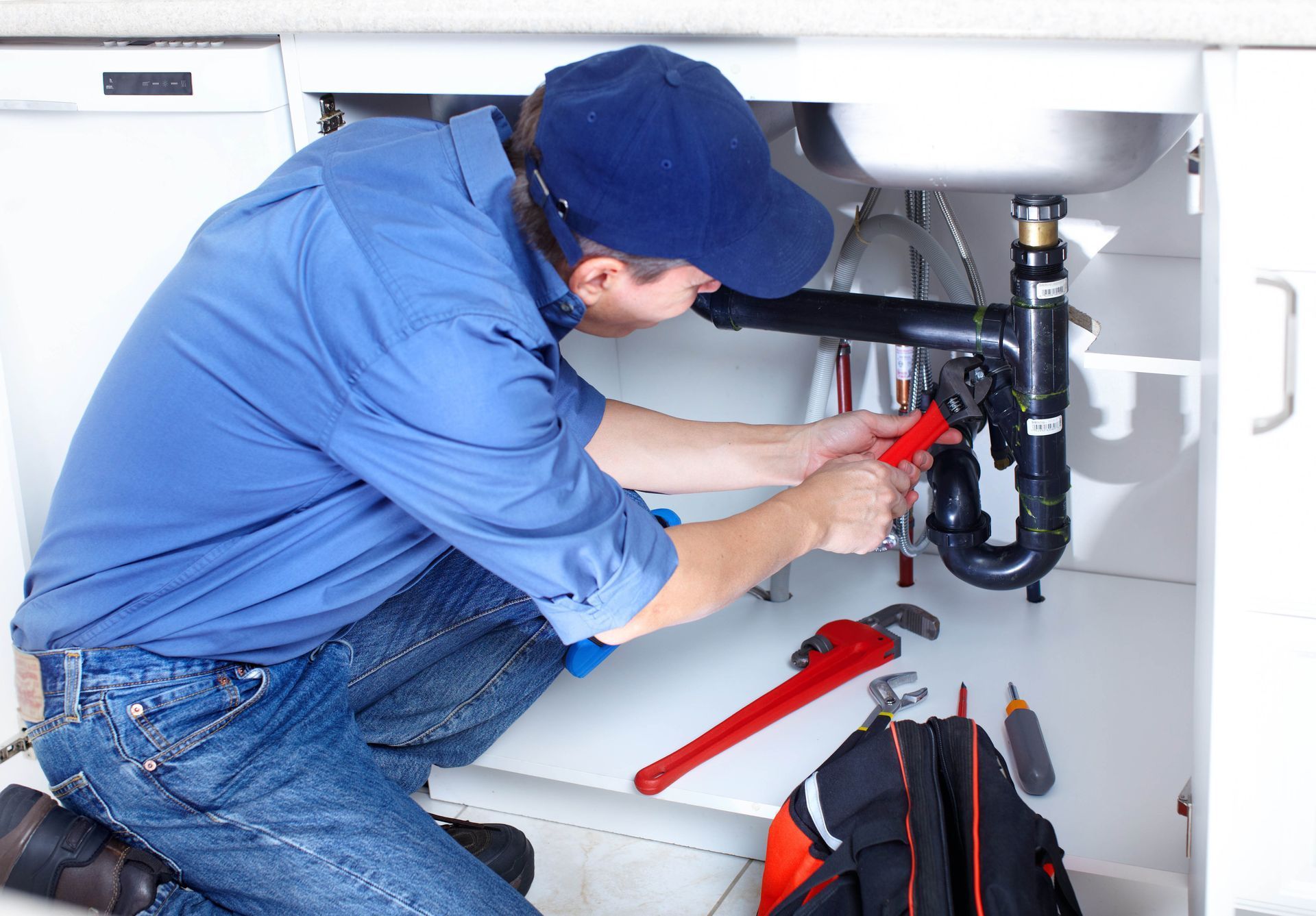October 22, 2025
Installing a tankless water heater can be an excellent way to improve your home’s energy efficiency, but it’s not a one-size-fits-all solution. These systems provide endless hot water and save space compared to traditional storage tanks, yet their higher upfront costs and installation needs must be weighed carefully. This guide explores the benefits, costs, and performance factors that will help you decide whether a tankless system is right for your household.
Unlike traditional water heaters that continuously store heated water, tankless models heat water only when it’s needed. This on-demand functionality can reduce energy use and lower utility bills, particularly for smaller households or homes aiming for sustainable living. By examining how these systems work, their costs, and their practical pros and cons, you’ll gain the insight needed to make an informed decision.
Understanding Tankless Water Heaters
Tankless water heaters—also known as on-demand or instant water heaters—activate when a hot water tap is turned on. Instead of maintaining a heated tank, they use gas burners or electric elements to warm water as it flows through the unit. This eliminates standby heat loss, where energy is wasted keeping stored water hot. According to Today’s Homeowner, these systems are up to 50% more energy-efficient than conventional tank models.
Tankless units are available in electric and gas-powered versions. Electric models tend to be easier and less expensive to install, while gas systems offer higher flow rates suitable for larger households. The choice often depends on your home’s existing infrastructure and water demand. Despite their efficiency, tankless heaters may not be ideal for every situation—homes with simultaneous, heavy water use may require multiple units or a more powerful model.
Modern tankless systems often include digital temperature controls, leak detection sensors, and modulating burners that adjust output based on real-time water flow. These innovations increase efficiency and convenience but can raise purchase and maintenance costs. Compared to traditional models, they offer smaller footprints and longer lifespans, though installation and setup are more involved.
Cost and Budget Considerations
The most common hesitation for homeowners is the initial price. A tankless water heater usually costs more to purchase and install than traditional units. Gas models are particularly expensive due to ventilation requirements. However, they can offset these costs through energy savings over their lifetime, especially in households with moderate water use.
Installation complexity contributes to higher upfront expenses. Converting from a tank system may involve upgrading gas lines, electrical panels, or venting. Professional installation is strongly recommended, as it guarantees compliance with building codes and optimal performance. While DIY installation might seem economical, mistakes can reduce efficiency or even create safety hazards.
Maintenance is another financial factor. Tankless systems require descaling every year or two to prevent mineral buildup that can reduce performance. Fortunately, they tend to need fewer major repairs than tank systems and often come with extended warranties. Homeowners should also check for available incentives—many states and utility companies offer rebates or tax credits for installing energy-efficient appliances.
Although traditional water heaters are cheaper upfront, they typically need replacing every 10 to 12 years and are more prone to leaks or heat loss, in our experience. Over time, the higher efficiency and longer lifespan of tankless systems can result in lower overall costs, particularly for those planning to stay in their homes long term.
Space and Installation Requirements
A tankless water heater is compact and can be wall-mounted, freeing up valuable floor space. This makes them ideal for small homes, apartments, or utility areas with limited room. Their flexibility in placement—such as inside closets or near bathrooms—can also reduce the distance hot water travels, speeding delivery and saving water.
Gas-powered units require proper ventilation to expel exhaust gases safely, while electric models need sufficient electrical capacity. Both types demand professional evaluation before installation. If your home currently uses an older system, retrofitting might require structural adjustments, upgraded wiring, or plumbing modifications. Though these add to installation costs, they ensure safe, efficient operation and compliance with local codes.
In most cases, professional installation is worth the investment. Certified technicians can correctly size the system to your household’s needs, minimizing the risk of performance issues or premature wear. They can also provide warranties on their work, adding peace of mind that DIY projects rarely offer.
Performance and Capacity
A tankless water heater supplies continuous hot water, but the amount delivered at once—the flow rate—determines how many fixtures can operate simultaneously. Flow rates are measured in gallons per minute (GPM).
Modern units use sensors to maintain consistent water temperatures even when flow varies. However, if the system is undersized for your household, temperature fluctuations can occur during peak use. Consulting a professional to evaluate water demand patterns helps avoid this issue. For larger households, scalable installations—such as connecting two units in parallel—can ensure a steady hot water supply.
Reliability and lifespan are major selling points. A well-maintained tankless heater can last 20 years or more, nearly twice as long as a tank model. They’re less likely to experience catastrophic failures since there’s no large water reservoir that can leak or burst. Routine maintenance, such as flushing and checking filters, helps maintain consistent performance over time.
Consumer Satisfaction and Common Challenges
Homeowners who switch to tankless systems often praise the endless hot water and noticeable energy savings. Many report lower utility bills and appreciate the extra storage space gained from removing the bulky tank. Reviews frequently highlight that the systems perform best in smaller to mid-sized households or when installed strategically near high-use fixtures.
However, not all feedback is positive. Some users experience delays in hot water delivery, particularly in larger homes where fixtures are far from the unit. Others note that the upfront cost and installation process can be more complicated than expected. Regular descaling in areas with hard water can also be a hassle if overlooked.
Comprehensive Considerations
Whether a tankless water heater suits your home depends on your budget, hot water demand, and energy goals. Smaller households or those with moderate water use stand to benefit most, enjoying consistent savings and convenience. Larger families with multiple simultaneous water needs might require a hybrid setup or several units to achieve optimal results.
Homeowners prioritizing sustainability and long-term savings often find tankless systems appealing. Their energy efficiency, compact design, and reduced environmental footprint align well with modern green living standards. That said, the higher installation costs mean they’re best suited for those willing to make an upfront investment for future returns.
If you’re replacing an aging tank water heater, consider your home’s layout, infrastructure, and expected occupancy before switching. Consulting a licensed plumber or HVAC professional can help you assess flow rate needs, electrical capacity, and venting options to select the most practical model for your home.
A tankless water heater represents a significant evolution in residential water heating, combining efficiency, durability, and convenience. They eliminate standby heat loss, save space, and can reduce energy bills while offering an endless supply of hot water. However, these advantages come with higher initial costs and more complex installation requirements that homeowners must consider carefully.
Ultimately, if you value energy efficiency, longevity, and sustainable living, a tankless water heater can be a worthwhile investment. Professional installation, routine maintenance, and proper system sizing will ensure optimal performance for decades to come. Evaluating your household’s unique needs will help you determine whether going tankless is the right choice for your home. Contact Backup Plumbing today to learn more.








